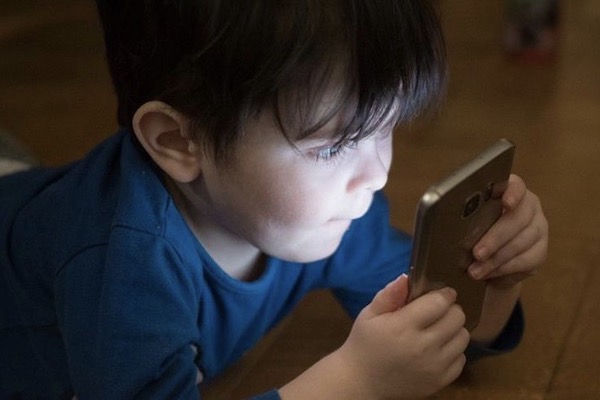Published on the 27/11/2024 | Written by Heather Wright

World-first ban moves step closer…
Australia’s House of Representatives has overwhelmingly voted to pass a bill that would ban those under 16 years from social media platforms including Facebook, Tiktok, Instagram and Reddit.
The lower house of parliament voted 102 votes in favour to 13 against, with the bill now moving to Senate and if it passes there – which it is expected to do so – it will take effect a year after it becomes law. [Update: On Thursday, November 28, the new laws were passed by Senate.]
“If there are less restrictive options available to achieve the aim of protecting children from harm, they should be preferred over a blanket ban.”
Some amendments were made to increase privacy protections , including a ban on platforms requiring users to submit government-issued identification.
The planned law places the onus on social media platforms to ensure they take ‘reasonable steps’ to prevent under 16s from having accounts. It would see social media companies fined up to AU$49.5 million for systemic breaches of the requirement to ensure age-verification protections are in place.
The bill creates a new definition of ‘age restricted social media platforms’ which will include Snapchat, TikTok, Instagram and X, among others, Minister for Communications Michelle Rowland says. Access to messaging and online gaming, as well as services which are health and education related such as Headspace, Google Classroom and Youtube will remain available, she says.
‘Robust’ privacy provisions, including requiring platforms to ringfence and destroy any information collected to safeguard the personal information of all Australians.
Some lawmakers have criticised the government for the rushed nature of the work. Prime Minister Anthony Albanese, who announced the plans in September, has been rushing to pass the bill by the end of the parliamentary year, this week. The bill was introduced to parliament last Thursday and had a single day for submissions into the ‘world-first’ legislation.
Many of the platforms impacted by the bill had asked that the vote be delayed until at least next June, when a government-commissioned evaluation of age assurance technologies is due to be completed.
A YouGov survey earlier this week showed support for the ban up, with 77 percent of Australian respondents supporting restricting access. In August the number sat at 61 percent with 46 percent of those aged 18 to 24 supporting a ban.
In November, a petition signed by more than 124,000 people was presented to Albanese calling for the age limit to be raised from 13 to 16. Among those presenting the petition were the parents of two 12-year-old girls who committed suicide after they were allegedly targeted by bullies harassing them through Snapchat.
But the eSafety Commissioner, in a submission to the Select Committee on Social Media and Australian Society earlier this year, warned that discussion about preventing children from accessing social media through age verification implied social media was a discrete form of media that could be separated from the rest of the internet and modern media.
“But social media forms part of a converged and integrated contemporary media environment. There is a fluid interplay between social media, websites, messaging apps, gaming platforms, dating apps, as well as ephemeral media,” the submission says.
Harmful messages of many of the most controversial social media influencers are just as easily found through an internet search as on social media.
“Even if social media could be demarcated and separated from other media, a primary concern is that children would migrate to other services and platforms with fewer safeguards.”
The Australian Human Rights Commission has also raised concerns, saying it has ‘serious reservations’ about the ban’s potential to ‘significantly interfere with the rights of children and young people’.
“If there are less restrictive options available to achieve the aim of protecting children from harm, they should be preferred over a blanket ban.”
Among its key reasons against the ban were the right to freedom of expression and access to information, inclusion and participation and that technological workaround, including VPNs and false age declarations, could undermine the effectiveness of a ban, while the ban won’t address the root causes of online risks or make platforms safer for everyone.
It also raised the concern that the ban could raise privacy risks for all Australians, saying it will rely on effective age assurance processes being adopted, meaning all Australians may be required to prove their identity in order to access social media.
“This may potentially require all Australians to provide social media companies with sensitive identity information, which poses a risk to our privacy rights in light of recent examples of data breaches and personal information being stolen.”
Concerns have also been raised that the ban would see the myID – previously GovID – digital identity scheme pushed to the fore as a means of identifying Australian social media users.
A Senate Environment and Communications Legislation Committee public hearing earlier this week heard from officials that the ban wouldn’t require all Australians to use the myID scheme.
Officials also told the hearing the platform companies would be required to take steps to ensure users weren’t using technological work arounds, such as VPNs.
Other countries are watching the Australian action closely.
In New Zealand the Before 16 lobby group is keen to see New Zealand follow Australia’s lead.
In the UK a similar ban is also ‘on the table’ technology secretary Peter Kyle told the BBC recently, adding that he wanted to see more evidence first, with research currently underway into the impact of technology, including social media, on young people.
The UK’s Ofcom regulator has taken on extra powers under the Online Safety Act, which launched last year. It requires tech companies to take more responsibility for content on their platforms and protect children from harmful material.
Many countries have already tried similar social media restrictions, with very little success.
In the United States the Children’s Online Privacy Protection Act 1998, which came into force back in 2000, required website and online services operators to seek parental consent.
Many companies simply imposed bans on under 13s, with those bans criticised for contributing to online age fraud.
Earlier this year the US Senate passed the Children and Teens’ Online Privacy Protection Act (Coppa 2.0) and the Kids Online Safety Act to better protect children and teens, saying social media companies were harvesting children’s personal data and making billions of dollars a year through targeted ads – speaking clearly to the lack of success the earlier Act has had.
The European Union has also made an attempt in 2015 to ban children under 16 from accessing online services, including social media, without parental consent. The proposed legislation, which prompted outcries from tech companies and human rights organisations, was dramatically watered down allowing individual countries to opt out and set their own limits.
The EU has, however, had some success with online protections for young people. It’s Digital Services Act forbids platforms from targeting personalised advertising at children.
Earlier this week the Australian federal government dropped its plans for anti-disinformation legislation, with Rowland saying there was ‘no pathway to legislate this proposal through the Senate’.



























